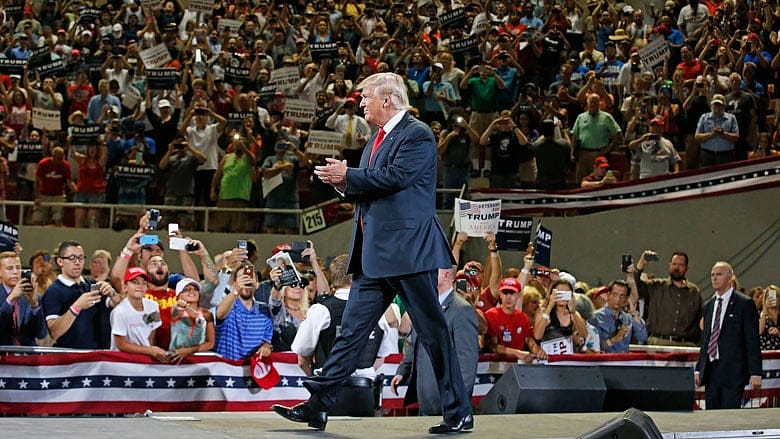Fellow Republicans still waiting for Trump’s promised cash

WASHINGTON (AP) — Donald Trump portrays himself as an indispensable cash resource for fellow Republicans up and down the ballot.
But while Trump is pulling in donor checks, an Associated Press review of campaign finance filings shows most of his fellow Republicans are still waiting for their cut. And the 2016 presidential nominee has a lot of work to do to if he wants to match the amount of financial aid Mitt Romney gave to his party four years ago.

